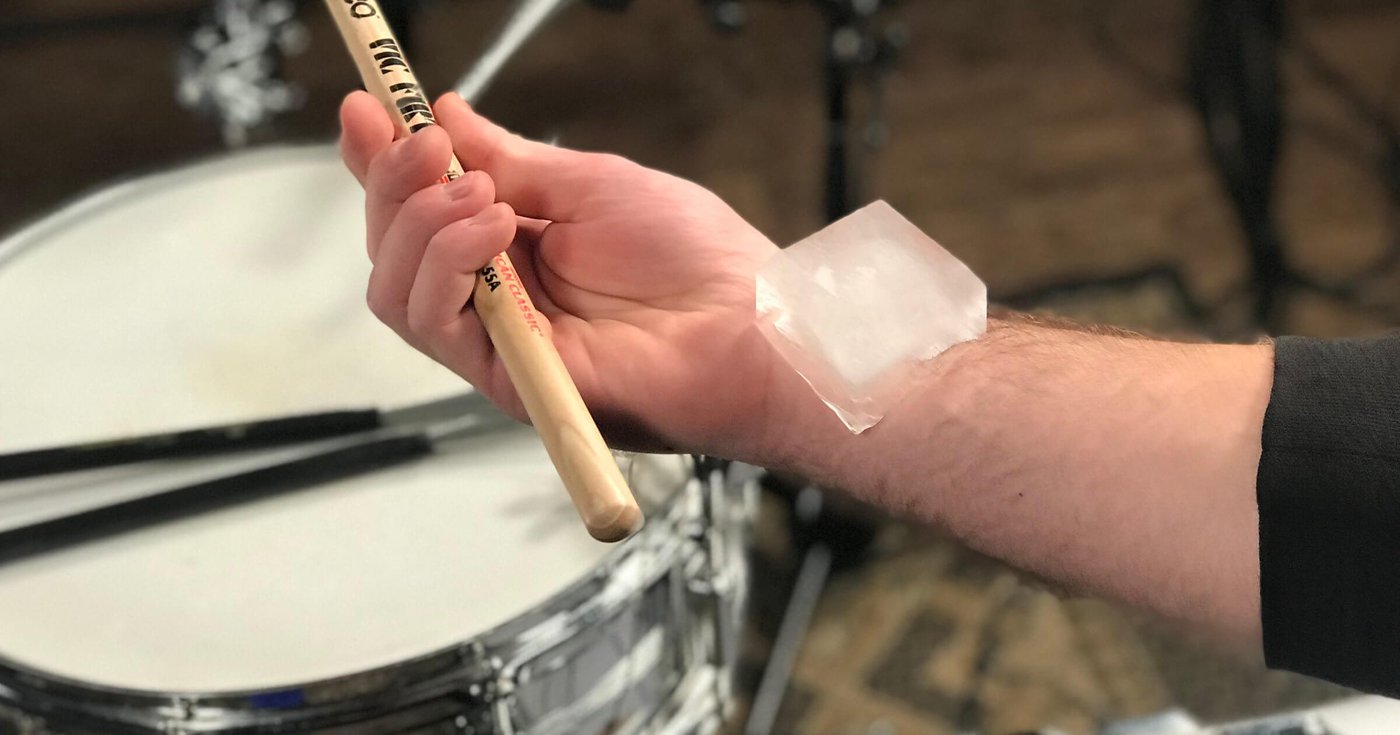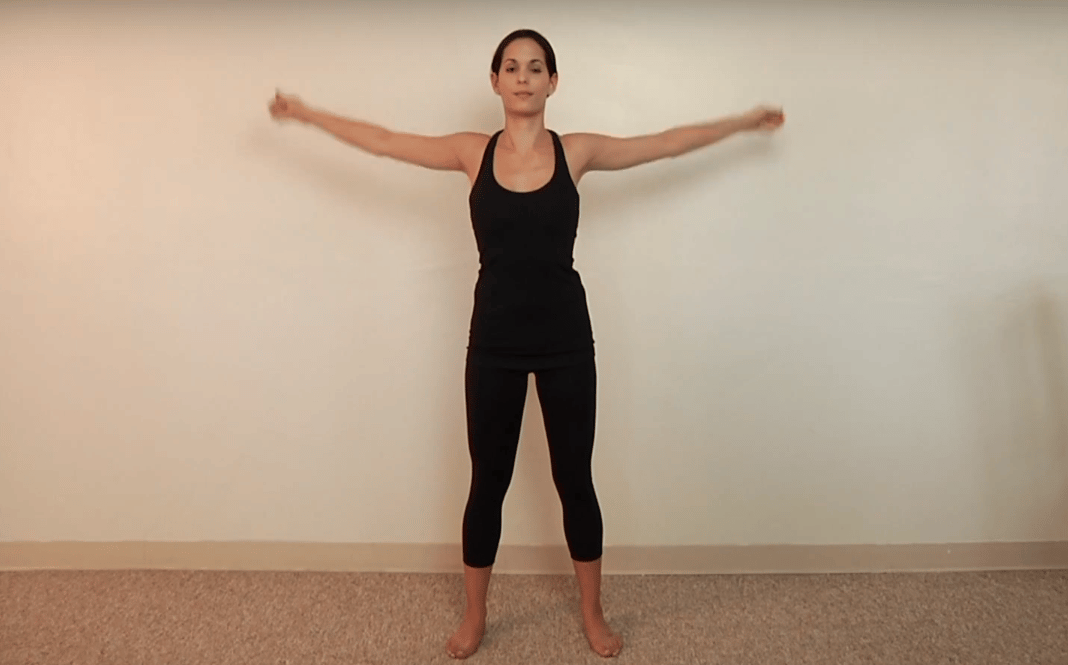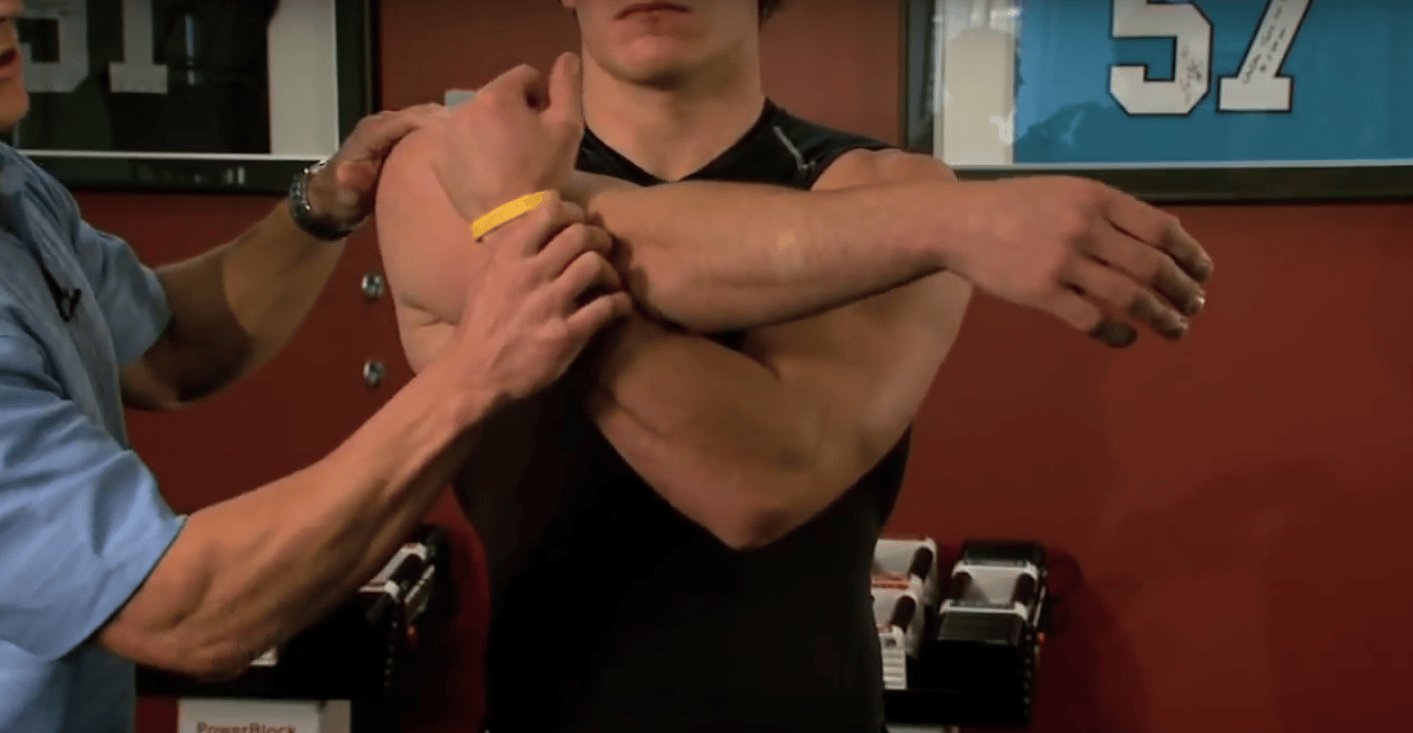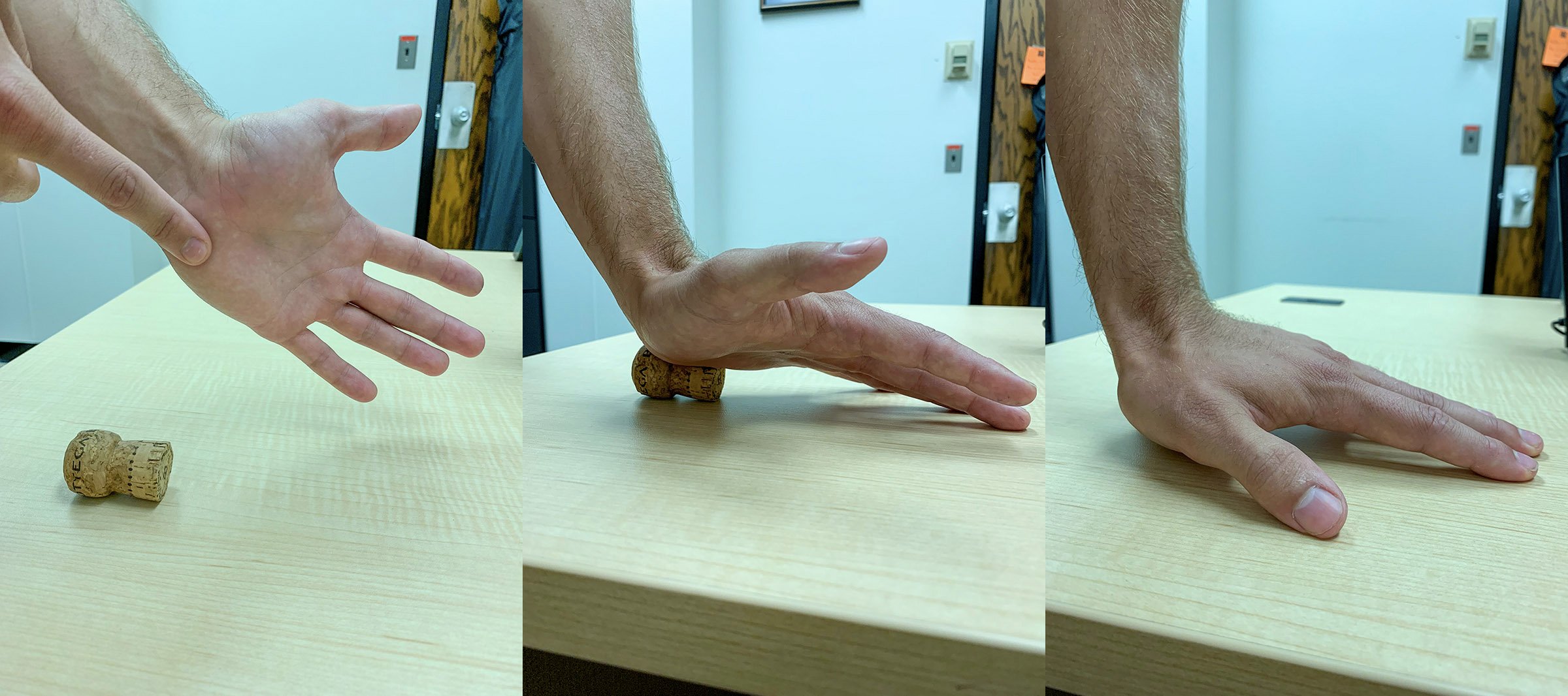
Have you ever experienced burning, pins-and-needles sensations or sharp pain, during or after playing the drums? These sensations can be early symptoms of a playing-related musculoskeletal disorder (PRMD). In a previous article, Dr. Azar reported that the two most common medical diagnoses for drumming PRMDs are tendinitis and carpal tunnel syndrome – words that strike fear into the hearts of many drummers.
It’s important to note that these conditions don’t have to be catastrophic – they can be treated! The key is early intervention. The sooner you take steps to deal with the problem (which means consulting medical professionals, following their advice, and making changes that will prevent it from happening again), the better your chances are of successfully recovering from the injury.
Before you can intervene, you have to be able to recognize when you are starting to develop a PRMD. Here is a brief description of the two most common drumming-related injuries:
Tendinitis
If your symptoms include swelling, increased heat, and sharp, painful movements (acute tendinitis)1, or dull, achy, uncomfortable sensations (chronic tendinitis), this might be your problem.
‘Tendinitis’ refers to an inflammation of a tendon, which is the connective tissue that attaches muscle to bone. It can happen in any tendon in the body, but commonly occurs in the shoulder (e.g., bicep tendinitis), on the inner or outer sides of the elbow (e.g., epicondylitis)1, and in the tendons of the wrist and the thumb.
This condition can be caused by repetitive motion, poor body mechanics and posture, and lack of strength in the muscles attached to these tendons.
Carpal Tunnel Syndrome
Typical symptoms of carpal tunnel syndrome include an intense burning and/or numbness/tingling sensation on the palmar side of the hand – particularly in the thumb and the index and middle fingers – and weakness of the hand.2
Carpal tunnel syndrome happens when the median nerve is compressed as it passes through the very small space created by the bones of the wrist and the transverse carpal ligament.2 The median nerve shares this space with the tendons of the wrist, finger, and thumb flexor muscles (9 in total).3
Repetitive squeezing, gripping, and wrist bending tightens the transverse carpal ligament, which narrows the carpal tunnel and compresses the median nerve. This interferes with the sensory signals being sent to the hand and the motor signals being sent to the thumb.2
Injury and Pain Management
If you are experiencing one of these injuries, please see a medical professional to confirm a diagnosis, and then consult a rehabilitation specialist (e.g., physiotherapist, athletic therapist – ask for a referral, if necessary) to develop a treatment plan that will be tailored to your specific issue.
Athletic therapist Dylan Durward frequently uses the exercises and thermal treatments described below in the rehabilitation programs he develops for clients who have been diagnosed with these injuries. But they are by no means a substitute for seeing your own medical team.
Before you play:
- Apply a heat pack to the problem area(s) for 10-15 minutes to increase circulation, relax tight muscles, and reduce joint/muscle stiffness. Wrap a towel around the heat pack to reduce the chances of burning your skin. Do NOT apply heat to an area that feels hot or is already inflamed.
- Warm up for at least five minutes to increase circulation and blood flow before you start playing. By ‘warm up’, we mean a physical warm-up off the drum kit that consists of gentle dynamic stretches of the entire upper limb from shoulder to fingers. Consider adding wrist circles, elbow pivots, and shoulder circles to your pre-show or pre-practice routine (do each movement 30 times in each direction). From here, you can progress to your typical on-the-kit warm-up.

Shoulder circles
While you’re playing:
- Find ways to incorporate breaks into your playing. This might be tough to accomplish during a live performance, but the short pauses between songs or the parts of songs with no drums are perfect opportunities to take “micro-breaks”. Use that time to squeeze in some dynamic stretches, like those described above.
- For long practice sessions, set a timer to remind yourself to take a short break every 20-30 minutes, and change up the elements you are working on (e.g., alternate between handwork, footwork, whole body playing, etc.). This will allow one muscle group to rest while the other is working.
After you finish playing:
- Do a short cool-down (5-10 minutes). Walk around for a few minutes to bring down your heart rate, then do some gentle static stretching to help reduce joint stiffness and temporarily relieve tight muscles. Consider adding wrist flexion and extension, elbow pronation and supination, pectoralis minor releases, and cross-arm stretches to your post-show or post-practice routine. For best results, hold each position for 30 seconds and repeat each stretch 3-5 times.
- Apply an ice pack to sore/painful areas of the body to help reduce inflammation and pain. Be sure to wrap the ice pack in a towel to protect the skin. Keep the ice pack in place for up to 15 minutes, until you feel sensations of cold, burning, aching, and numbness (CBAN). Take off the ice once the area feels numb, and wait at least 1 hour before re-applying ice (to reduce the chance of frostbite).

Cross-arm stretches
In between practices/performances:
- Proper engagement of the shoulder blade retractors (i.e., the rhomboids, latissimus dorsi, and trapezius muscles) can help keep the upper limb in a more efficient position and create more space for the bicep tendons within the shoulder. Try doing this shoulder blade squeeze exercise several times throughout the day to increase muscle strength and promote good posture.
- Have extra wine corks lying around? Place a cork on a hard, level surface, then place your hand palm-side down onto the cork and gently press down, alternating between the pinky and thumb sides at the base of the palm (near the wrist – see photos). This can help stretch the transverse carpal ligament to open up space for the nerves, arteries, and tendons that pass through the carpal tunnel.

Cork exercise for carpal tunnel syndrome
Top Takeaways:
- Tendinitis and carpal tunnel syndrome are treatable.
- Recognizing and combating the symptoms of these conditions in the early stages is vital for maintaining healthy upper limbs for a sustainable drumming career.
- Management options for these injuries include thermal therapies, regularly doing adequate warm-ups and cool-downs off the kit, and doing stretches and strengthening exercises in between practices/performances.
- See a medical professional to confirm a diagnosis, and then consult a rehabilitation specialist (e.g., physiotherapist, athletic therapist) to develop a treatment plan that will be tailored to your specific needs.
If you’re interested in reading Dr. Nadia Azar’s published research on the most common injuries for drummers, click here.
References
- Tendinitis [document on the Internet]. Rochester (MN): Mayo Foundation for Medical Education and Research (MFMER); 2019 [cited 2019 July 26]. Available from https://www.mayoclinic.org/diseases-conditions/tendinitis/symptoms-causes/syc-20378243.
- Carpal Tunnel Syndrome Fact Sheet [document on the Internet]. Bethesda (MD): Office of Communications and Public Liaison, National Institute of Neurological Disorders and Stroke, National Institutes of Health; 2019 [cited 2019 July 26]. Available from https://www.ninds.nih.gov/Disorders/Patient-Caregiver-Education/Fact-Sheets/Carpal-Tunnel-Syndrome-Fact-Sheet.
- Tortora GJ. Principles of human anatomy (9th ed.). New York, NY: John Wiley & Sons, Inc., 2002. 918 p.
- Blausen.com staff (2014). “Medical gallery of Blausen Medical 2014”. WikiJournal of Medicine 1 (2). DOI:10.15347/wjm/2014.010. ISSN 2002-4436. – Own work, CC BY 3.0. No changes were made to this image. Available from: https://commons.wikimedia.org/w/index.php?curid=27796924.
Neither Drumeo nor Dr. Azar can provide medical advice. Please go see a medical professional if you’re concerned about something! The content of this article is meant to provide you with some food for thought and some information to help you ask the right questions of your medical team.
Dylan Durward is a Certified Athletic Therapist and the exercises and thermal treatments mentioned in this article are generally considered safe, but they should not be used as a substitute for specific medical advice from a physician or other medical/rehabilitation specialist.

Dylan Durward and Dr. Nadia Azar
- Dylan Durward (BAHSc [Hons. AT]) is a Canadian Certified Athletic Therapist. He is currently pursuing his Master’s degree in Human Kinetics (Applied Human Performance) at the University of Windsor. Nadia R. Azar (PhD) is an Associate Professor of Kinesiology at the University of Windsor, where she runs the Drummer Mechanics and Ergonomics Research Laboratory (DRUMMER Lab). FB, IG, Twitter: @DrNadiaAzar.





